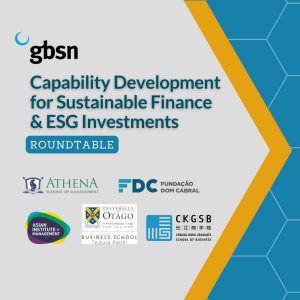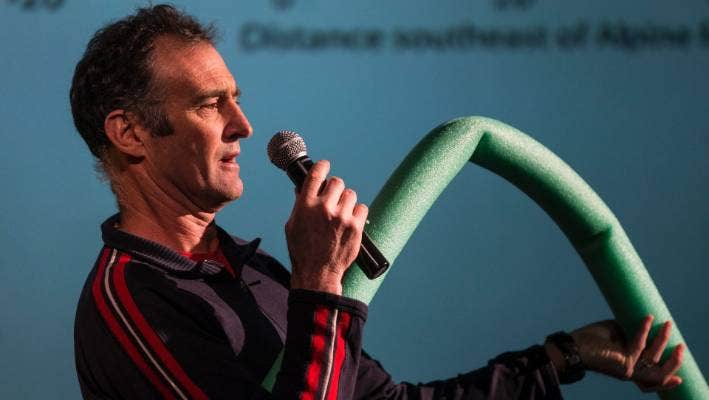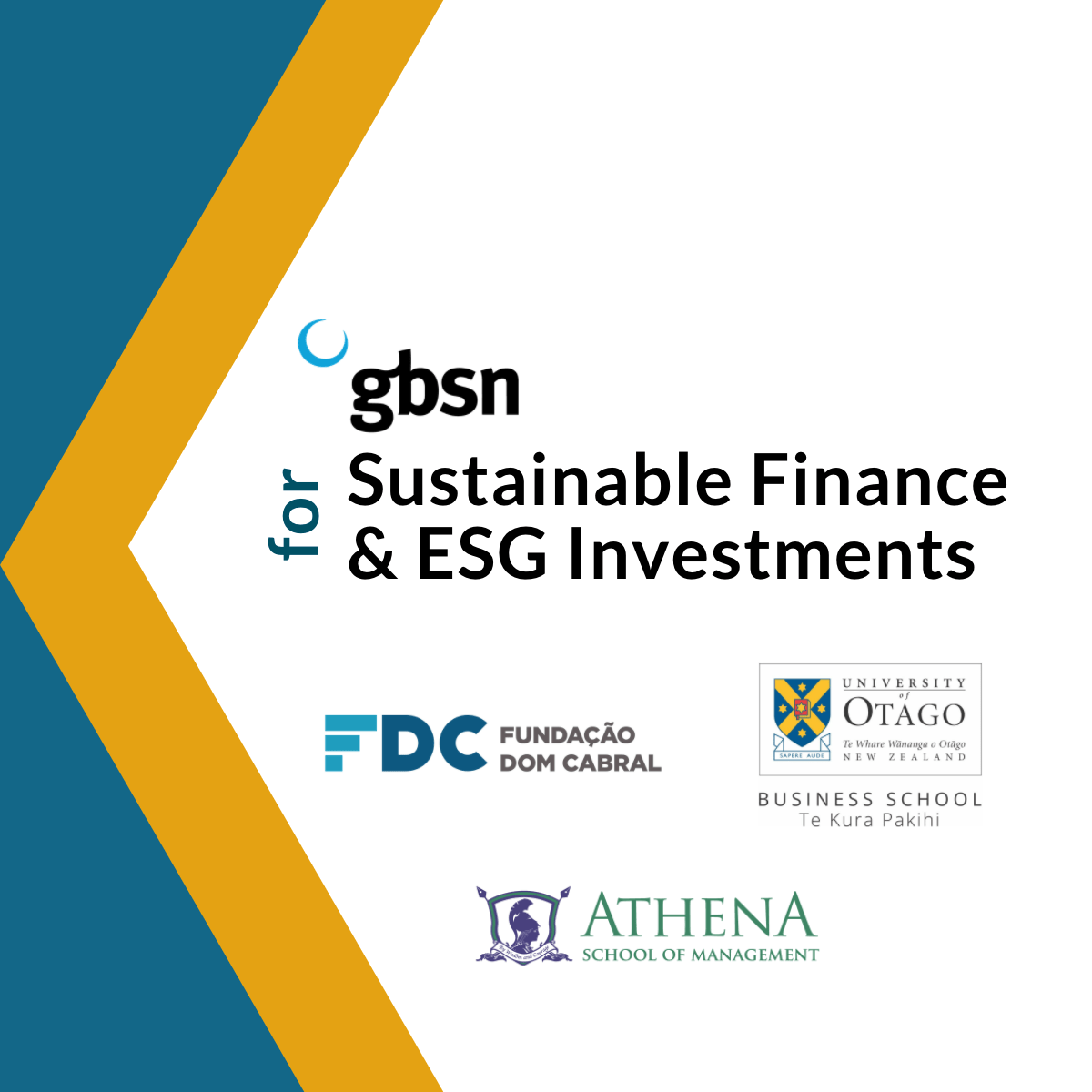CEFGroup Working Paper Featured in International Media
CEFGroup Deputy Director, Sebastian Gehricke, was recently interviewed by the Institutional Investor, discussing CEFGroup’s recent working paper entitled “In Holdings We Trust: Uncovering the ESG Fund Lemons” which explores New Zealand investable fund managers’ stated ESG beliefs, motivations and strategy and evaluates their portfolio ESG performance.
The news article is available HERE.
For more information on the working paper, visit New Research: In Holdings We Trust: Uncovering the ESG Fund Lemons.
ACC to Sponsor AOIC Sustainable Investing Event in 2022
CEFGroup is pleased to announce that ACC is joining the Precinct Properties to become the sponsors for the Assembly of Investment Chairs (AOIC) in 2022, where not-for-profit, Iwi and community trust organisations can receive and share knowledge on investing to tackle ESG challenges such as climate change, human rights and social issues.
“The AOIC presents a significant opportunity to discuss challenges and opportunities in ESG investing, in the context of creating real-world impacts and aligning investor and manager purpose,” says Dr Sebastian Gehricke, Deputy Director of CEFGroup, University of Otago. ACC Investment’s sponsorship “will allow the leadership team to continue, grow and improve this impactful event.”
The AOIC has been an annual event since 2019, convened by CEFGroup, one of the world’s largest climate and sustainable finance teams, and the NZ Super Fund.
For more information, visit the AOIC 2021 Event Page and the recent ACC Press Release.
Join Us at the GBSN Capability Development for Sustainable Finance & ESG Investments Roundtable
How can capability and capacity be developed in the global south? Join us to discuss this critical issue at the Global Business School Network (GBSN) Capability Development for Sustainable Finance & ESG Investments Roundtable. Details are as follows:
- Date and Time: Thursday the 5th of May, 6:00am-7:30am Eastern Daylight Time (i.e., Thursday the 5th of May, 10:00pm-11:30pm New Zealand Time)
- Speakers: Edith Aldewereld [Sustainable Finance Advisor, ACATIS Fair Value Investment AG], Giles Cuthbert [Managing Director, Chartered Bank Institute], Clemente del Valle [Director, Center for Sustainable Finance, Universidad de Los Andes], Lyn Javier [Assistant Governor of the Policy and Specialized Supervision Sub-Sector, at Bangko Sentral ng Pilipinas], and Rui Zhu [Professor of Marketing, Director of Social Innovation and Business for Good Center, and Director of Common Prosperity and Social Innovation Center, Cheung Kong Graduate School of Business]
- Moderators: Felip Calderon, Ivan Diaz-Rainey, Dan LeClair, Aditya Singh, and Viviane Torinelli
- More Details: See GBSN’s event page
- Click HERE to register
STRAND Project Publication: Price Recovery after the Flood
Available Open Access: https://onlinelibrary.wiley.com/doi/full/10.1111/1467-8489.12471
Abstract: We take advantage of a combination of a severe weather event from 3 to 4 June 2015 and a local policy, to investigate the housing market response to climate change-related flooding hazard. The study focuses on a residential area in a low-lying coastal suburb of Dunedin, New Zealand, where the groundwater level is shallow and close to sea level. An unusually heavy rain event in June 2015 resulted in flooding of a significant portion of land in especially low-lying areas. The city council responded by reviewing processes for storm-water management and by imposing minimum-floor-level [MFL] requirements on new construction in the low-lying areas previously identified as at risk of flooding. Applying a ‘diff-in-diff-in-diff’ strategy in hedonic regression analyses, we find that houses in the MFL zone sell for a discount of about 5 per cent prior to the flood. This discount briefly tripled in the area that flooded, but disappeared within 15 months, indicating either very short memory among homebuyers or no long-run change in perception of hazard.
CEFGroup leads Otago researcher submission on ETS consultation “Managing exotic afforestation incentives by changing the forestry settings in the NZ Emissions Trading Scheme”
Dr Sebastian Gehricke gathered a group of experts from the University of Otago to submit to the new ETS setting for the permanent forest category. It Is great to see the scheme evolve in a way to try and avoid unintended consequences, but there are many more improvements that are more nuanced. Two main suggestions in the submission were:
- Create differentiation in carbon credits or have a native/biodiversity token to be sold alongside credits, for carbon which is sequestered native/sustainable forests.
- Adjust the rules to incentivise/account for the benefits of continuous cover canopy (native or high value exotic), which is a proven forestry management system used by many European countries for better environmental and commercial outcomes.
To find out more on these experts’ thoughts, read the attached submission.
Otago University Researchers Response – Managing exotic afforestation incentives
CEFGroup Deputy Director Shared Recent Working Paper on Sharesies Podcast
CEFGroup Deputy Director, Sebastian Gehricke, was recently interviewed by the Sharesies podcast discussing CEFGroup’s new working paper which explores Australasian fund managers’ stated ESG beliefs, motivations and strategy and evaluates their portfolio ESG performance.
The interview is 7 minutes in total (also available on apple music and other platforms): Click HERE
Key findings are as follows:
- ESG investing is driven mainly by expected value rather than values
- Climate Change is the most important ESG theme for fund managers
- Fund managers struggle to provide even the simplest climate risk metrics and when they do, these are underreported
- Climate initiative signatory funds have significantly higher #carbon intensities than non-signatories
For more details and a copy of the study visit:
New Research: In Holdings We Trust: Uncovering the ESG Fund Lemons
Upcoming Webinar: Empirical Geometric Models of Groundwater Inundation as a Consequence of Sea Level Rise
Please join us for a webinar next Thursday (31st March) by Dr Simon Cox, GNS Science Structural Geologist and CEFGroup/ STRAND Marsden Project team member.
- Date and Time: Thursday the 31st of March, 11:00am NZDT
- Presentation Title: Empirical Geometric Models of Groundwater Inundation as a Consequence of Sea Level Rise
- Speaker: Dr Simon Cox
- Livestream via Microsoft Team Meeting: Click HERE
Abstract:
The impacts of sea-level rise include rising shallow groundwater in coastal areas, which produces cascading and cumulative hazards. Subsurface stormwater and wastewater networks are vulnerable and potentially prone to system collapse. Groundwater infiltration reduces network capacity and can result in sewerage overflows, with associated public-health and environmental costs. With large infrastructure redesign/renewals in mind or the possibility of managed retreat, we need to quantify the shallow groundwater hazard to inform and optimise investment decisions throughout New Zealand. Understanding the intensity and spatial reach of hazards, and how various hazards interplay, is becoming an expectation for planning and mitigation. But shallow groundwater is a largely unseen, poorly-understood hazard. A commonly adopted ‘quick’ estimate of the hazard faced by communities is to assume that groundwater levels will equilibrate locally with sea level. Such ‘bathtub’ models can be generated quickly from digital terrain models, using GIS techniques to provide first-order approximations of land elevation relative to sea level. But while useful for non-specific, generalised desktop assessments of regional asset exposure, the approach reflects little of the principles of groundwater systems and the dynamics of subsurface flow.
Groundwater surfaces tend to be gently sloped, rather than flat, with humps, ridges and hollows caused by the natural flow system and hydrogeology, and its interplay with urban development, drainage, stormwater systems and other engineering features. Here the concept of empirical geometric models is introduced to provide a compromise between computationally expensive numerical solutions and the spatial precision required for probabilistic hazard assessment. Empirical geometric models are developed using the observed shape and absolute position of groundwater-surface, assuming it will rise with sea level. As such, the subtle variations in hydraulic gradient and shape of the water table are in future expected to be, on average, the same as at present. By simplifying variables and controlling processes into a single parameter, the geometric models contain implicit assumptions and require many caveats. But incorporating natural observations and variability can be done relatively quickly over wide areas and has the potential to improve both spatial and temporal understanding of shallow coastal groundwater and hazards nationwide.
New Research: In Holdings We Trust: Uncovering the ESG Fund Lemons
Sustainable investing is largely driven by expected value, not ethical values, a new report from University of Otago’s Climate and Energy Finance Group (CEFGroup) has found.
A copy of the industry report can be found here: Australasian Fund Manager ESG Practices
A copy of the working paper could be found via the following link: In Holdings We Trust: Uncovering the ESG Fund Lemons
Stakeholder demand for socially responsible investment has led to a rise in investment funds adopting responsible investment practices, including environmental, social and governance (ESG) practices. However, despite sustainable investing sweeping the industry, it is often unclear what fund managers are actually doing to invest more sustainably.
The CEFGroup’s latest industry report – in partnership with Saturn Advice, MyFiduciary and Morningstar – surveyed asset managers of global equity funds available to Australasian investors to understand how they integrate sustainable practices within the investment decision-making process. Along with many new insights, the report found:
-
Responsible investing by fund managers is driven mainly by performance value and attracting investors, not ethical values and responsibilities.
-
Only half of the asset managers surveyed reported their portfolios’ carbon intensity, a basic measure of carbon risk in an investment portfolio, which is surprising as portfolio carbon intensity should be the easiest portfolio climate metric to provide in terms of data availability. This is particularly startling as climate change was the most important issue according to the survey.
-
Of those that did report these metrics, around half underreported and many did so by a large extent.
Saturn Advice General Manager Peter Dine says there is growing evidence that companies who embed ESG considerations into their decision-making are likely to achieve superior long-term financial performance, compared to those that don’t. This report provides insight into where the fund management industry is currently at on ESG practices and helps with questions people should ask managers about their sustainability practices, he says.
MyFiduciary Principal Chris Douglas agrees and says studies like this help to put a spotlight on how investors and fund managers are responding to growing sustainability demands. “In-depth analysis like this helps to lift the level of debate within the industry and inform investors and fund managers on good practice and the spectrum of outcomes from the leaders to the laggards,” he says.
The results are based on a Master of Finance thesis from University of Otago student Lachie McLean, which looks at managers’ actual portfolio holdings.
EMMI Co-Founder outlines carbon data problems and CEFGroup partnership
In a recent blog post, EMMI Co-Founder, Ben McNeil, outlines carbon data problems and CEFGroup partnership.
Ben says he “reached out to CEFGroup immediately” after reading the paper written by CEFGroup STRAND Marsden Postdoctoral Fellow Quyen Nguyen and CEFGroup Director Ivan Diaz-Rainey, which uses a machine-learning approach to predict corporate carbon emissions.
“We have been fortunate to collaborate to expand their techniques allowing better predictive models that help us solve some of the carbon data challenges”, he says.
For more information, visit The EMMI Blog – Can we fix the carbon data problem for investors?
CEFGroup Director Becomes Co-Chair of GBSN Sustainable Finance & ESG Investment Impact Community
CEFGroup Director, Ivan Diaz-Rainey, together with Aditya Singh (Director, Athena School of Management) and Viviane Torinelli (Co-Founder, BRASFI), founded and chair the Global Business School Network (GBSN) for Sustainable Finance & ESG Investment Impact Community.
The Impact Community is a forum for educators interested in taking sustainable finance in the global south to the next level. This group of institutions commit to increase awareness and support from a North to South perspective and to increase cooperation from a South to South perspective. The Impact Community aims to start this dialogue by involving business schools from across the world and with organizations that have domain expertise.
Aditya Singh is the Chair of the Impact Community with Ivan Diaz-Rainey and Viviane Torinelli supporting as Co-Chairs. Academics from business schools across the globe are invited to join the Impact Community. Click HERE to sign up.
For more information, visit the GBSN Impact Community’s webpage.










